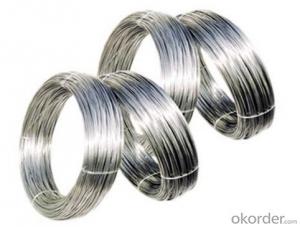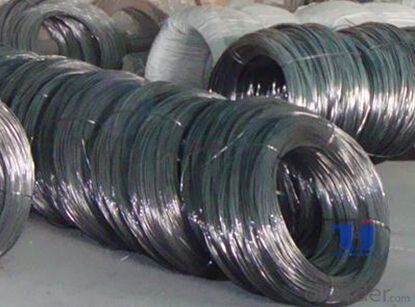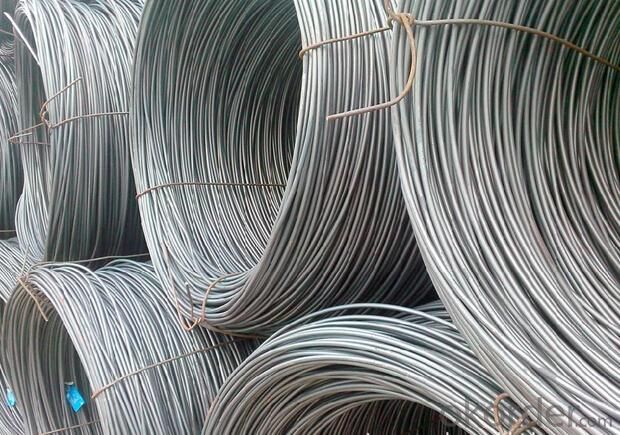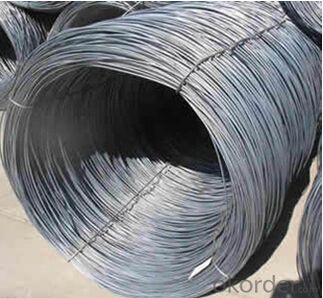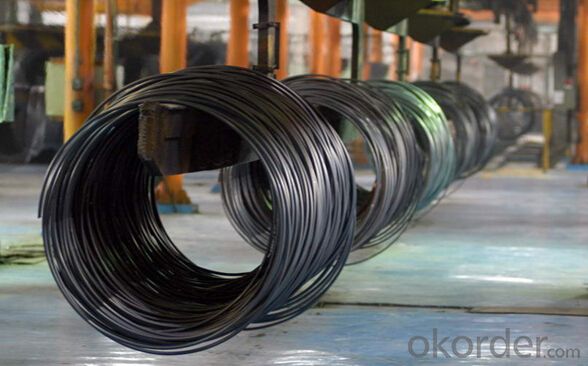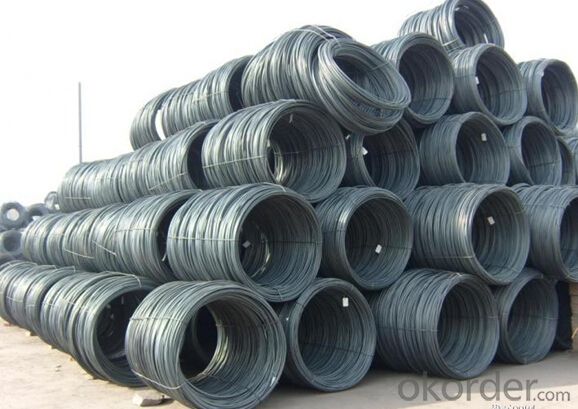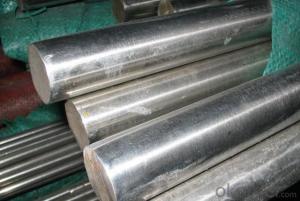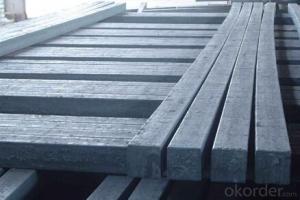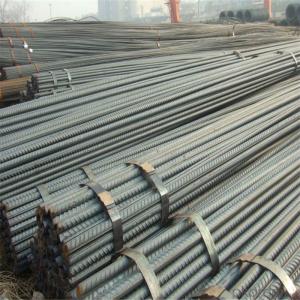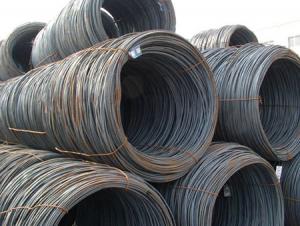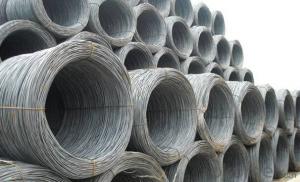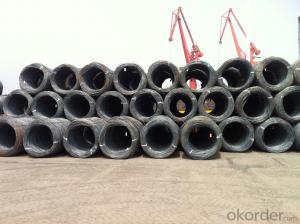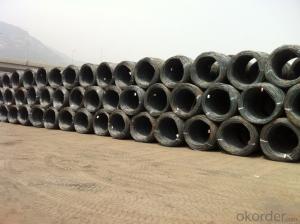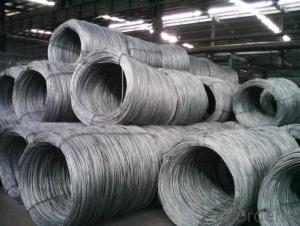Grade SAE 1008 Steel Wire Rods Building Construction Materials
- Loading Port:
- Tianjin
- Payment Terms:
- TT OR LC
- Min Order Qty:
- 25 m.t.
- Supply Capability:
- 10000 m.t./month
OKorder Service Pledge
OKorder Financial Service
You Might Also Like
Specification
Building Construction Materials SAE 1008 Steel Wire Rods
Specification of SAE1008 Steel Wire Rods
| Steel Grade | Q195-Q235,Q235,SAE 1008-1018 Steel Wire Rod |
| Diameter | 5,5.5, 6.5, 7,8, 9,10, 12,14,20mm.etc. |
| Coil weight | 1.8-2.1mts |
| Application | drawing, construction materials, machinery parts, construction for Houses, Bridges, Roads. |
| Deliver Time | 7-20 working days after receipt of L/C or deposit by T/T |
| Packing | In coils, loading in container or by bulk vessel |
| Payment terms | 1).100% irrevocable L/C at sight. |
| 2).30% T/T prepaid and the balance against the copy of B/L. | |
| 3).30% T/T prepaid and the balance against L/C |
Chemical Composition of SAE1008 Steel Wire Rods
Grade | Chemical Composition(%) | |||||
C | Mn | Si | S | P | Cr | |
SAE1006B | 0.03~O.07 | ≤0.32 | ≤0.30 | ≤0.045 | ≤0.040 | 0.3-0.35 |
Mechanical properties | ||||||
Yield strength(N/mm2) | Tensile strength(N/mm2) | Elongation(%) | ||||
250-280 | 350-380 | ≥32 | ||||
Grade | Chemical Composition(%) | |||||
C | Mn | Si | S | P | Cr | |
SAE1008B | 0.10max | 0.3~O.50 | 0.15max | 0.050max | 0.040 max | 0.3-0.35 |
Mechanical properties | ||||||
Yield strength(N/mm2) | Tensile strength(N/mm2) | Elongation(%) | ||||
≥195 | 315-430 | ≥30 | ||||
Company Information
CNBM International Corporation is the most import and export platform of CNBM group(China National Building Material Group Corporation) ,which is a state-owned enterprise, ranked in 270th of Fortune Global 500 in 2015.
With its advantages, CNBM International are mainly concentrate on SAE1008 steel wire rods and other special steels
, and devotes herself for supplying high quality series of refractories as well as technical consultancies and logistics solution.
After-sale service | CNBM provides the services and support you need for every step of our cooperation. We’re the business partners you can trust; you can relax and get on with doing business. |
For any problem, please kindly contact us at any your convenient time, we’ll reply you in our first priority within 24 hours | |
Advantages | Industry experience over 20 years. |
Shipment of goods -More than 70 countries worldwide. | |
The most convenient transport and prompt delivery. | |
Competitive price with best service. | |
High technical production line with top quality products. | |
High reputation based on best quality products. |
Products Show
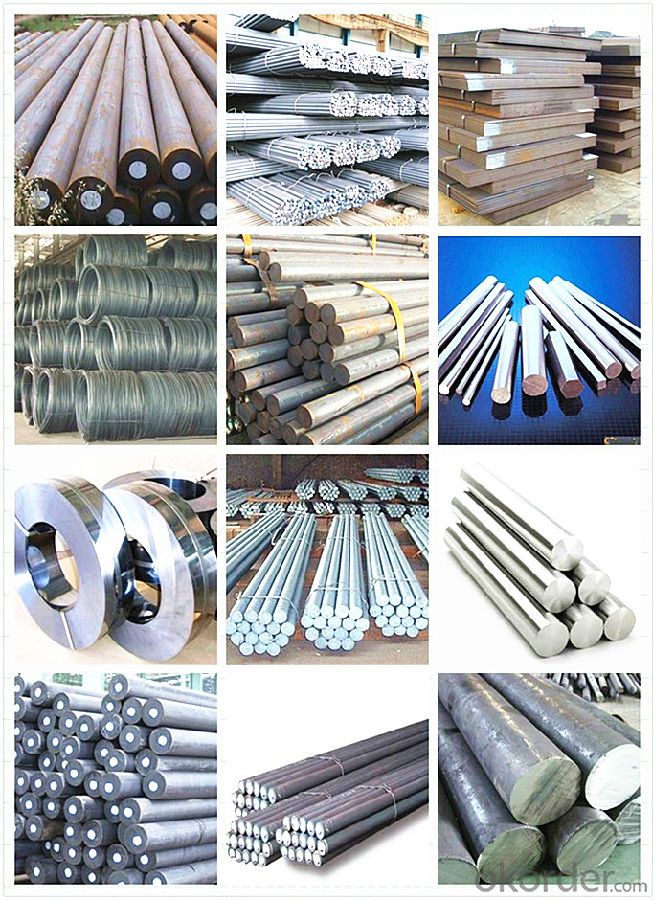
FAQ
Are you a trading company or manufacturer? | Manufacturer |
What’s the MOQ? | 3 metric ton |
What’s your delivery time? | 15-35 days after downpayment received |
Do you Accept OEM service? | Yes |
what’s your delivery terms? | FOB/CFR/CIF |
What's the Payment Terms? | 30% as deposit,70% before shipment by T/T |
Western Union acceptable for small amount. | |
L/C acceptable for large amount. | |
Scrow ,Paybal,Alipay are also ok | |
Why choose us? | Chose happens because of quality, then price, We can give you both. |
Additionally, we can also offer professional products inquiry, products knowledge train (for agents), smooth goods delivery, excellent customer solution proposals. | |
What's your available port of Shipment? | Main Port, China |
What’s your featured services? | Our service formula: good quality+ good price+ good service=customer's trust |
Where are your Market? | Covering more than 160 countries in the world |
- Q: How does special steel contribute to the heavy equipment industry?
- Special steel contributes to the heavy equipment industry by offering enhanced strength, durability, and resistance to wear and tear. It enables the production of high-performance components and parts, such as gears, axles, and blades, that can withstand heavy loads, extreme temperatures, and harsh environments. The use of special steel in heavy equipment ensures improved safety, increased productivity, and longer service life, making it a critical material for the industry.
- Q: How does special steel contribute to the construction aftermarket industry?
- The construction aftermarket industry greatly benefits from the use of special steel, as it offers a wide range of advantages and applications. Firstly, special steel is exceptionally strong and durable, making it perfect for constructing various infrastructure elements like bridges, buildings, and roads. Its high tensile strength allows for greater load-bearing capacity, enhancing the overall safety and longevity of structures. Moreover, special steel is renowned for its resistance to corrosion and extreme weather conditions, making it particularly valuable in construction projects. By utilizing special steel, construction companies can ensure that their structures are better equipped to withstand harsh environments, reducing the need for frequent repairs and replacements. Additionally, special steel provides versatility in terms of fabrication and design. It can be easily molded and shaped into different forms, allowing architects and engineers to create innovative and visually appealing structures. This flexibility enables the construction aftermarket industry to meet various design requirements while maintaining structural integrity. Furthermore, special steel offers long-term cost-effectiveness. Although the initial investment in special steel may be higher compared to other materials, its durability and low maintenance requirements result in reduced lifecycle costs. This makes it a cost-efficient choice for construction projects, as it minimizes ongoing expenses related to repairs and replacements. Lastly, special steel contributes to sustainability in the construction industry. Due to its strength and durability, structures built with special steel have a longer lifespan, reducing the need for frequent demolitions and reconstructions. Additionally, special steel is highly recyclable, promoting a more sustainable approach to construction by minimizing waste and conserving resources. In conclusion, special steel plays a vital role in the construction aftermarket industry by providing superior strength, durability, resistance, versatility, cost-effectiveness, and sustainability. Its exceptional properties contribute to the creation of safer, longer-lasting, and more visually appealing structures, making it an indispensable material for construction projects.
- Q: What are the main manufacturing processes for special steel?
- The main manufacturing processes for special steel include melting, refining, casting, hot rolling, heat treatment, cold rolling, and surface treatment.
- Q: What are the properties of wear-resistant steel?
- Wear-resistant steel possesses several properties that make it suitable for withstanding wear and abrasion. These properties include high hardness, toughness, and strength, which help in resisting deformation, chipping, and cracking. Additionally, wear-resistant steel also exhibits excellent corrosion resistance, enabling it to withstand exposure to harsh environments without deteriorating. These properties make wear-resistant steel a popular choice for applications that involve heavy machinery, mining equipment, cutting tools, and industrial components subjected to constant wear and tear.
- Q: How does special steel contribute to reducing product waste?
- Special steel contributes to reducing product waste in several ways. Firstly, it is known for its durability and strength, which means that products made from special steel have a longer lifespan and are less likely to break or wear out quickly. This reduces the need for frequent replacements, thereby minimizing product waste. Additionally, special steel can be fabricated into complex shapes and sizes, allowing manufacturers to optimize material usage and minimize waste during production. The ability to customize special steel to specific requirements also ensures that products are designed with the right dimensions and strength, reducing the chances of defects or inefficiencies that could lead to waste. Moreover, special steel often has superior corrosion resistance and other protective properties, making it suitable for applications where products are exposed to harsh environments or frequent use. This reduces the likelihood of premature degradation or damage, further extending the product's lifespan and reducing waste. Overall, special steel's durability, customization capabilities, and protective properties play a significant role in reducing product waste by increasing product longevity, optimizing material usage, and minimizing defects or damage.
- Q: Can special steel be used for precision instruments?
- Yes, special steel can be used for precision instruments. Special steel, such as tool steel or stainless steel, offers excellent hardness, strength, and corrosion resistance, making it ideal for precision instruments that require high accuracy and durability.
- Q: What are the different nitriding techniques used for special steel?
- There are three main nitriding techniques used for special steel: gas nitriding, salt bath nitriding, and plasma nitriding. Gas nitriding involves exposing the steel to ammonia gas at high temperatures, resulting in the diffusion of nitrogen into the surface. Salt bath nitriding involves immersing the steel in a bath of molten salt containing nitrogenous compounds, allowing for nitrogen diffusion. Plasma nitriding, on the other hand, uses a low-pressure plasma to bombard the steel surface with nitrogen ions, creating a hardened layer. Each technique offers unique advantages and is chosen based on the specific requirements and properties desired for the special steel.
- Q: How does special steel contribute to reducing maintenance costs?
- Special steel contributes to reducing maintenance costs by providing increased durability and resistance to wear and corrosion. Its superior strength and hardness properties make it less susceptible to damage, thereby reducing the frequency of repairs and replacements. Additionally, special steel's ability to withstand extreme temperatures and harsh environmental conditions extends the lifespan of components, reducing the need for frequent maintenance and associated costs.
- Q: What are the advantages of using special steel?
- There are several advantages of using special steel. Firstly, special steel offers enhanced strength and durability compared to regular steel, making it suitable for applications that require high resistance to wear, fatigue, and impact. Secondly, special steel has excellent heat resistance, allowing it to maintain its structural integrity even at high temperatures. Additionally, special steel can be tailored to meet specific requirements, such as corrosion resistance, electrical conductivity, or magnetic properties. This versatility makes it suitable for a wide range of industries, including automotive, aerospace, construction, and energy. Overall, the advantages of using special steel include superior strength, durability, heat resistance, and customization possibilities.
- Q: What are the different methods of non-destructive testing for special steel?
- There are several methods of non-destructive testing (NDT) that can be used to evaluate the quality and integrity of special steel without causing any damage. These methods include: 1. Ultrasonic Testing (UT): This method uses high-frequency sound waves to detect defects, such as cracks or voids, within the special steel. A transducer is used to emit sound waves into the material, and the reflections or echoes are analyzed to identify any anomalies. 2. Magnetic Particle Testing (MT): This technique is based on the principle of magnetic fields and is primarily used to detect surface or near-surface defects in special steel. A magnetic field is induced in the material, and magnetic particles are applied. Any discontinuities or defects will cause the particles to gather, forming visible indications. 3. Liquid Penetrant Testing (PT): This method involves applying a liquid dye or penetrant to the surface of the special steel. The penetrant is drawn into any surface defects through capillary action. After a certain period, excess penetrant is removed, and a developer is applied to make the indications visible. 4. Radiographic Testing (RT): This technique utilizes X-rays or gamma rays to inspect the internal structure of special steel. The material is exposed to radiation, and a film or digital detector captures the transmitted radiation. Any inconsistencies or defects within the material will be visible on the resulting image. 5. Eddy Current Testing (ECT): ECT is mainly used for detecting surface or near-surface defects in special steel. It works by inducing an alternating current into a coil, creating an electromagnetic field. Any variations in the material's electrical conductivity or magnetic permeability caused by defects will generate changes in the coil's impedance, which can be analyzed. 6. Visual Testing (VT): Although not a direct NDT method, visual inspection is often used as a preliminary step to identify surface defects or irregularities in special steel. This method involves a thorough visual examination of the material using appropriate lighting and magnification tools. These different methods of non-destructive testing for special steel provide valuable insights into the material's quality, helping ensure its structural integrity and reliability in various applications. The choice of method depends on factors such as the type of defect being sought, the location of the material, and the specific requirements of the industry or application involved.
Send your message to us
Grade SAE 1008 Steel Wire Rods Building Construction Materials
- Loading Port:
- Tianjin
- Payment Terms:
- TT OR LC
- Min Order Qty:
- 25 m.t.
- Supply Capability:
- 10000 m.t./month
OKorder Service Pledge
OKorder Financial Service
Similar products
Hot products
Hot Searches
Related keywords
